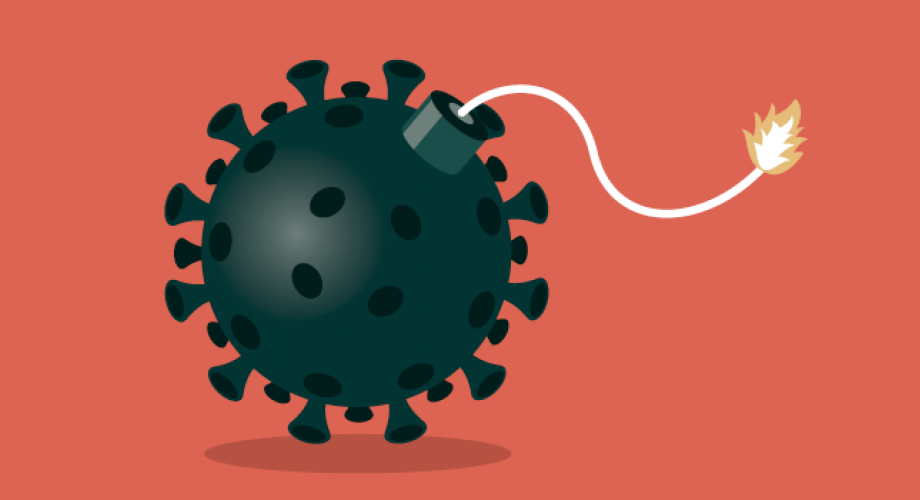Owners and operators of affordable housing communities have a lot to worry about.
As the COVID-19 pandemic persists, managers of affordable housing communities are straining to protect their residents. They clean obsessively. They have set up hotlines to share information and have established networks of volunteers to check on vulnerable residents.
At the same time, many managers have to worry about an increasing number of residents being unable to pay their rents. Millions of Americans have lost their jobs and not all affordable housing residents receive rental subsidies to make up for lost income. Also, the rents and rental subsidies at many affordable housing communities are tabulated based on the average rents and incomes in their area. A prolonged recession would cut into those rents and incomes.
Protecting Residents Comes First
The top priority for affordable housing community managers is to keep residents and staff safe from COVID-19—especially at communities where a large number of the residents are elderly or vulnerable.
“The greatest challenge has been keeping our residents and staff safe,” says Michelle Norris, Executive Vice President of External Affairs and Strategic Partnerships for National Church Residences (NCR), based in Columbus, Ohio. NCR’s communities house more than 42,000 low-income seniors in 25 states, including many of the states hit hardest by the coronavirus, such as Florida, Georgia, Michigan, New York and Texas.
Companies like NCR carefully disinfect the shared spaces still open at their communities such as lobbies, elevators and stairwells, although amenity spaces like gymnasiums and community rooms often remain closed. Managers follow standards set by the federal Centers for Disease Control and Prevention (CDC), along with state and local guidance. These common areas are even more difficult to clean than usual, because they have been getting more traffic. Managers also have to manage more trash and recycling.
“People have been at home much more—practically 24/7 given that they are not going to work, school or events,” says Milton Pratt Jr., Executive Vice President at the Michaels Development Co., based in Camden, N.J. Aside from more cleaning and trash pickup, it means more wear and tear on the common areas.
On the other hand, maintenance crews at Michaels and other communities have done a lot less in-apartment work since the start of the pandemic to help limit the spread of the virus. “Regular maintenance has been curtailed,” says Pratt. “The focus is on emergency maintenance, since we [aren’t] entering homes unless absolutely necessary.”
Communication Is Key
During the pandemic, communicating with residents about repairs or other issues has often been difficult. At many communities the leasing office has been closed. NCR created its own coronavirus hotline to provide information on the crisis to its 26,300 residents and staff.
“Everyone was really scared,” says Norris. It was important to make sure the field team knew what to do, he adds.
NCR has a clear policy if one of its residents tests positive for COVID. “We alert residents to positive cases in the building—not the names, to protect the privacy of residents,” says Norris. Using the hotline, “we track all of our positives through their journey.”
NCR community managers also created networks among residents in which the seniors check-up on one another. “We have set up quite a bit of the old-fashioned ‘I’m OK, you’re OK,’” Norris says. NCR had previously worked to create strong relationships with the seniors at its communities. “It’s already built into the DNA of the buildings,” she adds. “If you did not have a culture of this, it can be hard to get residents to rally.”
Volunteers of America (VOA), based in Alexandria, Va., developed its own rapid- response team to communicate with residents about the coronavirus. The system has been “quite effective in preventing and dealing with positive cases as they crop up,” says Patrick Sheridan, VOA Executive Vice President for Housing.
Managers of affordable housing communities also rely on partnerships with service providers to help care for residents. For example, Michaels Development has partnered with nonprofit support services organization Better Tomorrows at its communities for families and seniors. “They have been focused on food delivery and wellness services,” says Pratt. “They’ve been adapting to continue these services while minimizing contact with individual residents. They [also] adapted their youth summer programs to outside and virtual activities.”
Early in the pandemic, there was a shortage of the N95 masks needed by health care workers. To solve the problem, NCR made its own fabric masks for its staff, each marked with the company logo. “We had a culture of mask wearing way before it was cool,” says Norris. “Volunteers also offered to make masks for residents. People kept making them and offering them to our seniors.”
Bendix Anderson is a freelance writer.
